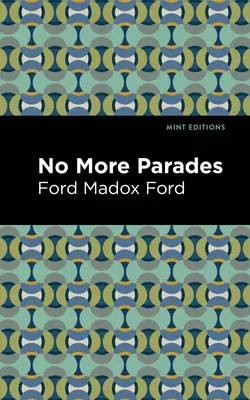No More Parades (1924) is a novel by Ford Madox Ford. Set during the
First World War, the novel is the story of Christopher Tietjens, a
brilliant statistician and wealthy aristocrat known as "the last Tory."
As he moves from a faithless marriage into an affair of his own,
eventually volunteering to fight under dubious--perhaps
suicidal--motives, Tietjens appears both symbolic and tragically human,
a casualty of a dying era dedicating its final breaths to death,
despair, and destruction. Adapted for television twice--a 1964 series
starring Ronald Hines and Judi Dench, as well as a 2012 series starring
Benedict Cumberbatch and Rebecca Hall--Parade's End is essential to
Ford's reputation as a leading novelist of the twentieth century. In the
words of W. H. Auden, "There are not many English novels which deserve
to be called great: Parade's End is one of them." Having gone to war
to leave his troubled romantic life behind him, Christopher Tietjens is
late to realize that the glories of battle are a dangerous fiction
indeed. Now a Captain, he is responsible for thousands of soldiers on
the front lines of France, most of whom were not born into fortune as he
was. As a German assault rains fire on their vulnerable position, as
Tietjens holds a dying comrade in his arms, as he witnesses the best
minds of his generation go mad amid so much destruction, Tietjens
attempts to maintain a shred of his own fractured humanity. Back at
home, his unfaithful wife takes full advantage of his prolonged absence,
but soon longs to draw Christopher back into her life. Tragic and
emotionally piercing, No More Parade's is a story of romance, war and
betrayal that proves a brilliant sequel to Some Do Not. With a
beautifully designed cover and professionally typeset manuscript, this
edition of Ford Madox Ford's No More Parades is a classic work of
British literature reimagined for modern readers.


